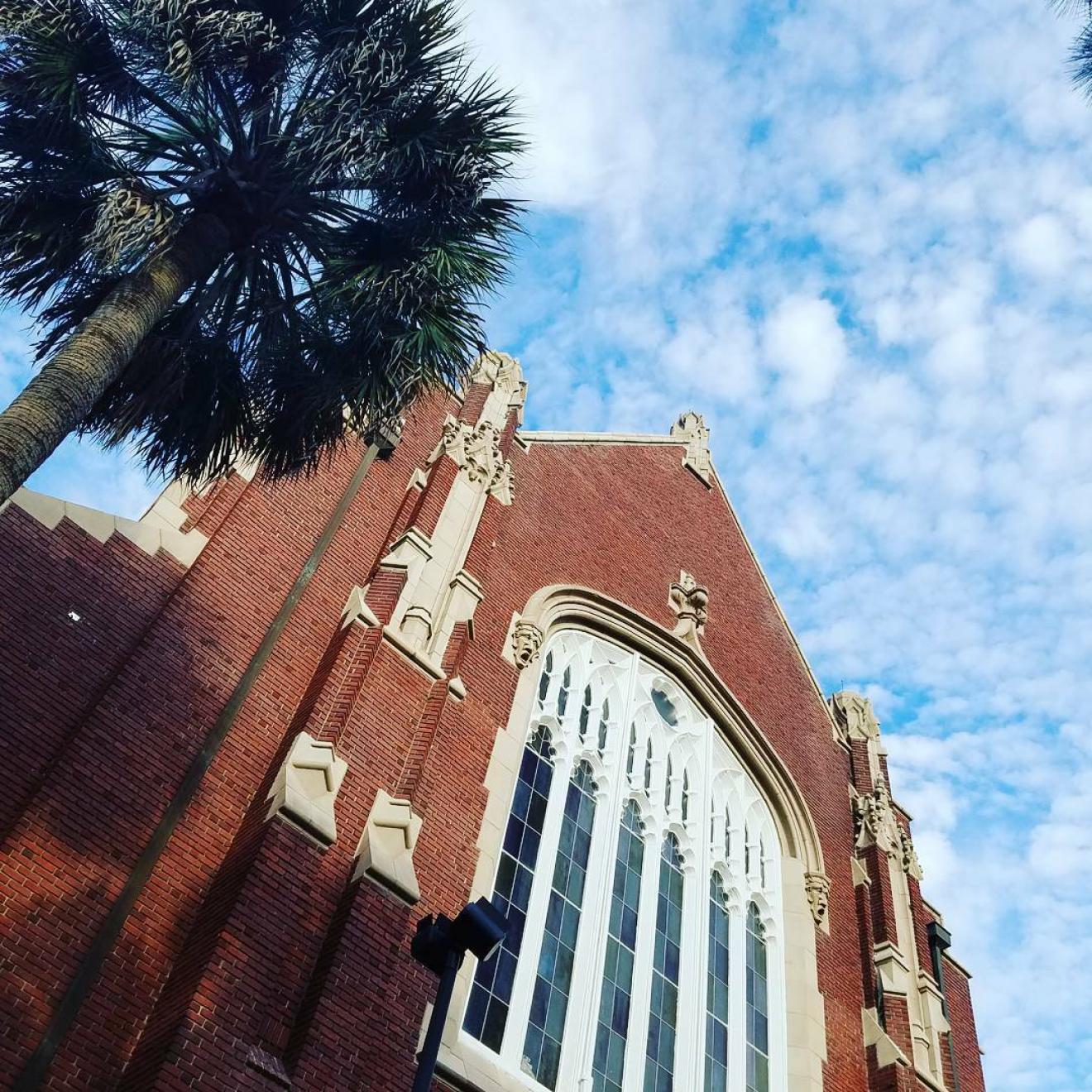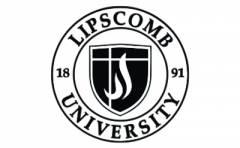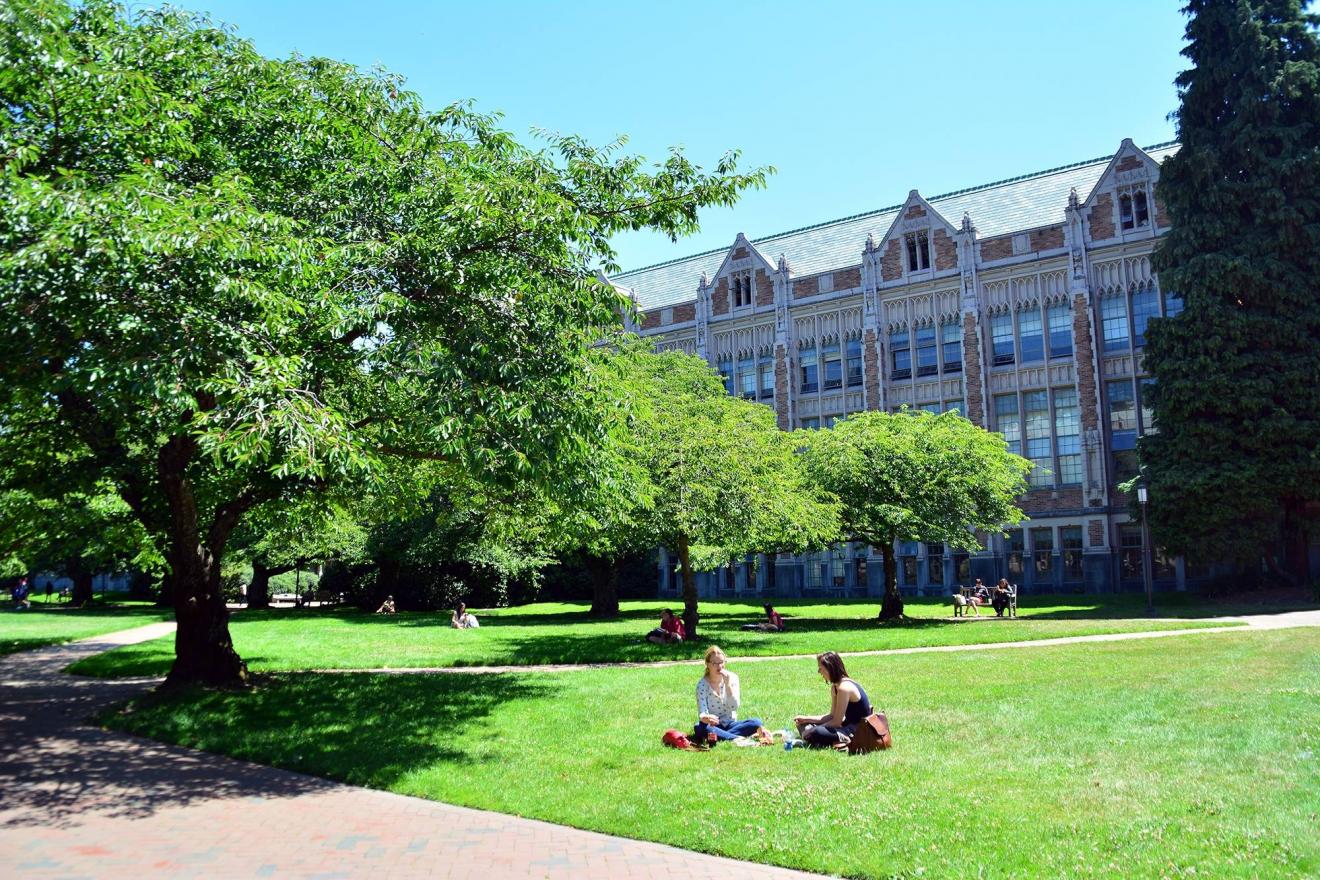Best Special Education and Teaching colleges in the U.S. 2025
Did you know that there’s a shortage of special education teachers in the U.S.? According to American University, more than half of U.S. school districts struggle to find appropriately trained special education teachers, and this disproportionately affects high-poverty districts.
If you’re thinking about a career working with the country’s most vulnerable student population, a job in special education teaching is both rewarding and very much in-demand today. These jobs can also pay reasonably well. Special education middle school teachers in California, for example, make a median annual wage of $76,420. The top 10% of earners in that demographic make about $106,130 per year.
The first step toward a valuable job in teaching is finding the right degree program.
Click Here to See the Best Colleges in the USBest Special Education and Teaching colleges in the U.S. for 2025
The special education program at Boston College provides a foundation for undergraduate students that want to become involved in helping children and adults with special needs in a classroom setting. Students interested in exploring this major learn how to communicate with and structure lesson plans for those with specific learning or physical disabilities. Undergraduates usually complete an on or off-campus internship at an elementary or middle school locally, which helps BC students develop professional relationships and references for when they graduate.

For students interested in pursuing a special education degree in Florida, the University of Florida offers a competitive track with ample professional observation opportunities at local middle and high schools in the Gainesville metro area. Undergraduates are advised to apply to internships during the special education program and in summer breaks to gain hands-on experience that will be invaluable when they apply for professional roles post-graduation.
Lipscomb University offers 3 Special Education and Teaching, General degree programs. It's a small, private not-for-profit, four-year university in a large city. In 2022, 56 Special Education and Teaching, General students graduated with students earning 50 Master's degrees, 4 Certificates, and 2 Bachelor's degrees.
The University of Georgia offers an undergraduate program in special education, which is the first step for students interested in teaching children with developmental limitations. It is common for students to take classes in psychology and early childhood development as an introduction to the broader field, along with hands-on classes to familiarize themselves with student interaction and communication. UGA offers a four-year path with opportunities to apply to internships at schools locally in Clarke County to gain real-world experience.
University of Maryland-College Park offers 4 Special Education and Teaching, General degree programs. It's a very large, public, four-year university in a large suburb. In 2022, 31 Special Education and Teaching, General students graduated with students earning 18 Master's degrees, 9 Bachelor's degrees, and 4 Doctoral degrees.
The University of Hawaii at Manoa’s special education program is a top destination for students interested in pursuing a career working with children and young adults with mental and physical disabilities. The university’s program offers classes on subjects like autism, severe disabilities, and applied behavior analysis. Students should expect a rigorous workload, extensive practicum observation time, and professional internships to further their experience. After graduation, learners are prepared to begin a special education teaching role in Hawaii.

For New York City residents with aspirations of pursuing a degree in special education, New York University (NYU) offers a four-year program designed to prepare students for jobs working directly with children with developmental difficulties and physical disabilities after graduation. Along with special education courses, students complete classes in psychology and literacy, as well as in-person internships at public schools in New York City to gain experience working in a classroom setting with students and practicing professionals.
The special education program at Towson University offers classes geared towards students preparing to enter into the field as a teacher, private tutor, or school resource officer. In the classroom, students have opportunities to study Autism Spectrum Disorder (ASD) and can choose an early childhood education or elementary education track, depending on their preferences. Learners can also complete off-campus internships at public schools in the Baltimore metro to gain professional experience.
The University of Washington has a special education program that emphasizes courses in psychology and early childhood development and is structured to prepare students for classroom roles immediately upon completion of their bachelor’s degree. This program takes four years to complete and provides students with a range of local internship opportunities in the Seattle metro, along with seminars to provide professional observation and guidance before entering the workforce.
Texas Christian University’s special education program prepares students interested in working with children and adults with special needs including developmental and physical disabilities. This program requires courses that teach students how to assess student needs, communicate with learners, and structure lesson plans in a classroom environment. Classes are available both in-person and remote, though some courses may include in-person instruction at grade schools in the Fort Worth metro. Students at TCU typically attend practicum during their junior or senior year to further their professional experience before graduation.
Find local colleges with Special Education and Teaching majors in the U.S.
What is Special Education and Teaching?
Special education teachers work directly with learners who possess a wide range of emotional, mental, learning, or physical disabilities. These professionals work in both public and private schools and utilize specialized assessment and instructional skills to meet the needs of their specific student population.
Special education refers to teaching students using methodologies that are tailored to their challenges, exceptional needs or learning disabilities. Special education professionals provide early intervention to infants and toddlers identified as having disabilities or developmental delays and also work with eligible school age. The most effective instructional strategies require training and expertise that most general education teachers are unequipped to provide.
Though every program is different, a master’s degree in special education generally addresses the most effective methods of teaching to the abilities of children with learning disabilities or cognitive or emotional delays. The programs are offered in-person, online, and as hybrids between the two. A master’s degree in special education generally takes two years to complete and arms teachers with the expertise, skills, and training they need to help special needs students learn and thrive. It also expands their opportunities for advancement, careers outside of the classroom, and higher compensation.
Special Education and Teaching Degree Overview
A special education teaching degree program prepares you with the hard and soft skills teachers need today. These skills include the critical thinking and assessment skills that special education teachers need to offer the best educational support for each learner. Excellent degree programs also help bring out and harness your best qualities, including creativity, patience, and a sense of humor, which helps foster a successful and comfortable learning environment for students with special needs.
Courses in Special Education Programs
Though each special education program will have its own curriculum based upon the priorities of its administration and its particular concentration, students considering a degree in special education can anticipate taking classes similar to those listed below:
- Introduction to the Exceptional Child
- Specific Learning Disabilities: Identification, Instruction and Assessment (LD)
- Autism Spectrum Disorders (ASD)
- Emotional and Behavioral Disorder Identification, Management, and Assessment (EBD)
- Understanding and Teaching Students with Intellectual Disabilities (ID)
- Assessment/Program Planning and Evaluation for Children with Special Needs
- Special Education Law
- Reading Disorders: Assessment, Planning, and Instruction
- Research in Special Education
- Educating Young Children with Special Needs
- Working with Gifted and Talented Students
- Designing & Utilizing Assistive Learning Technologies
Skills Learned in a Special Education Program
Special education programs prepare graduates to help students with special needs achieve and succeed. This is learned through both coursework and research and results in graduates attaining invaluable skills, including:
- Recognizing and addressing challenging behaviors in applied settings and situations
- Lesson delivery across the autism spectrum
- Behavior modification in special needs students
- Help children develop social, emotional and behavioral wellness skills
- Deliver multi-sensory reading education to students with language-based learning disabilities
- Working collaboratively and creatively with others to deliver quality education to special education students
Master's Degree in Special Education and Teaching
Making the decision to become a special education teacher is a commitment to helping students realize their fullest potential. For the many students who receive special education services, fulfilling that commitment requires expertise in the instructional strategies tailored to their unique needs, and that is what a master’s degree in special education provides.
Special education teachers with master’s degrees are in increasingly high demand and can earn significantly higher salaries than their colleagues with bachelor’s degrees. They are also positioned to easily transition into positions outside of the school setting. Potential non-education roles include diagnosticians and testers, counselors, case managers, and policymakers.
Master of Science or Arts in Teaching (MST or MAT) vs Master of Education (M.Ed.)
When investigating the various special education master’s programs available, you will find that each curriculum has its own particular focus. In addition to differences in concentration/specialization, students must also pick between a master of science or arts in teaching (MAT or MST) degree or a master of education (MEd) degree. Though the distinction may sound like a matter of semantics, each has its own focus and facilitates a different career outcome.
While both programs take approximately two years to complete, they diverge significantly when it comes to the content of the material presented. Students who choose to pursue a master of science or arts in teaching often plan on becoming better, more effective teachers. They want to learn new methods to educate their students and better understand their students’ needs and how best they can learn. These degrees make graduates better teachers.
By contrast, graduate degree candidates who opt for a master’s in education learn more about leadership and how the educational system works to serve students. Their work focuses as much on issues of ethics and collaboration as on understanding the learning differences of students requiring special education. This knowledge certainly serves to make them better teachers should they chose to remain in the classroom, but also prepares them for careers outside of the classroom.
What Can I Do with A Master’s in Special Education Degree?
After graduating with a master’s degree in special education, you will not only be eligible for higher compensation as a teacher but will also find yourself qualified to move outside of the classroom into other meaningful, rewarding career paths. Special education teachers with master’s degrees provide invaluable guidance to countless agencies and organizations that are dedicated to meeting the needs of individuals with disabilities, including:
- School boards
- Government agencies
- Nonprofit organizations
- Private corporations
Having a master’s degree in special education can open the door to becoming a diagnostician or case manager, a consultant or program coordinator. Graduates also work in early childhood education, elementary education, and secondary education.
How Long Does A Special Education Graduate Program Take?
Students who pursue a master’s degree in special education should expect to spend 1-2 years on coursework completing roughly 30-to-36 credit hours made up of both classwork and, in some cases, a capstone project, practicum, or thesis. Specific program lengths vary upon whether students choose a full time or part time program, whether they opt for an online degree or in-person setting, and their educational background prior to the master’s program.
If an applicant to a program has not previously taught and/or does not have an undergraduate degree in education or a teaching certification, they may also be required to complete prerequisite classes. Alternatively, those who have already attained a certain level of experience and have teaching certifications may be able to accelerate their degree completion, particularly if they select an online program.
Applying to Master’s in Special Education Degree Programs
Whether you’ve already been teaching students or you’ve decided to go straight from undergraduate school to a graduate program, applying for admission to a master’s in special education program requires meticulous attention to the selection of the program that most closely matches your goals and needs, the collection of required application material, and the submission of all needed documents to meet each school’s deadlines.
Admission Requirements for Special Education Master’s Programs
Each of the accredited programs that offer master’s degrees in special education has its own specific admission requirements, but there are commonalities among all of them that candidates for admission can expect. These include:
- Completed application form with associated fees
- Bachelor’s degree from a regionally accredited institution of higher learning with a minimum GPA of 3.0
- Official transcripts of undergraduate work
- A record of teaching
- Satisfactory writing skills demonstrated through a personal essay
- Valid teaching certificate
- Current resume
How Much Does a Master’s in Special Education Degree Cost?
The cost to attend a graduate program in special education varies greatly, with tuition costs ranging from under $10,000 to almost $70,000. Tuition is based on factors including:
- The program’s reputation
- The quality of the faculty
- Whether the curriculum is taught online or in-person
- Whether the student is pursuing the degree on a full-time basis or part-time basis
- Whether the degree is offered by a private college or public university
- Whether the student is from in-state or from out-of-state
When choosing a program to attend, students should weigh their priorities against the elements that add or subtract to costs. Keep in mind that by choosing an online program, students avoid the additional fees attributable to room and board.
Certification and Licensure in Special Education and Teaching
Master of Special Education Licensure and Certification
There are several different types of credentials required to teach. Every state requires that educators have at least bachelor’s degree and hold a teaching license from their state, and some states now require that teachers pursue and attain a master’s degree within five years of starting their teaching career.
Any graduate of a master’s in special education program who has not previously been licensed will be well prepared to meet the student teaching standards their state requires. In addition to licensure, certifications are awarded following completion of both an educational curriculum and a certain level of hands-on teaching practice. These certifications may be for:
- Specific grade levels such as elementary or high school
- Secondary education
- Special education
- Specific subject areas
There is also a national certification board, the National Board for Professional Teaching Standards, that awards certifications to teachers that meet their standards. Certification is voluntary but ensure that an individual teacher has met the high and rigorous standards set by the organization. The agency offers a special “Exceptional Needs Standard” ideal for those who have earned a master’s degree in special education.
What Can I Do with a Degree in Special Education and Teaching?
There are many job opportunities in the public and private sectors for students interested in pursuing a career in special education, and a degree in this field can provide the foundation for the exciting opportunity to help special education students to learn and grow.
A degree in special education includes classes like early childhood development, mental and physical disabilities, and lesson planning. Special education teachers must possess strong communication skills and an ability to structure lesson plans that provide stimulating and educational opportunities for their students with ranging cognitive abilities.
To become a special education instructor, you typically need a four-year bachelor’s degree with on-the-job training to get familiarized with working with students in a classroom setting. Special education programs usually offer in-person coursework due to the personal nature of the job, but there are online options for those interested in pursuing an associate’s degree. The Bureau of Labor Statistics projects that opportunities in this field will grow by 8 percent in the next decade, a much higher growth rate than other professions.
Earning an Online Special Education and Teaching Degree
Online Master of Special Education vs. On-Campus Degrees
Just a few years ago, the idea of earning a graduate degree online was unheard of. But today, accredited colleges and universities offer high-quality programs in both online and in-person formats, and some of the best programs in the country are exclusively available online.
Because online education has progressed to the point where academic quality meets that of in-person classes, potential students can now make their decision based on what is best for them as individuals. When choosing, you should consider the following factors:
- Online education offers more flexibility and the ability to continue your personal and career responsibilities.
- In-person education offers more hands-on opportunities and more face-to-face engagement with your cohort.
- Online education is frequently less expensive, especially because you can learn at home rather than having to pay to commute, park, eat on or near campus, and potentially have to live on or near campus.
Many master’s in special education programs require that their students who are not currently teaching fulfill a minimum number of hours of in-person teaching experience in a special needs setting. If you are not currently a teacher and you’re considering an online program, make sure you understand each program’s requirements for in-person study and experience.
Special Education and Teaching Career and Salary Overview
How Much Do Special Education Master’s Graduates Make?
According to the National Council on Teacher Quality, earning a master’s degree provides first-year teachers with $2,760 more in than teachers who have only earned a bachelor’s degree. This pay differential grows with experience, topping out at an average of $7,358 more per year by the time a teacher reaches the maximum number of years of experience within their district’s pay scale.
Some school districts offer incentives that recognize a master’s degree as equivalent to several years of experience, while others offer compensation for higher education credits earned, whether they result in a degree or not. The larger the school district, the greater the difference tends to be. For example, the most experienced teachers with master’s degrees earn $36,716 more than bachelors-degreed teachers with the same level of experience in the Montgomery County Public School District in Maryland.
Master’s in Special Education Degree Salaries and Career Outlook
A master’s in special education program provides graduates with the skills and knowledge needed to reach the children who require the most attention and help. That need goes far beyond the classroom, and so do the career opportunities. Here are a few of the positions that this degree makes possible, along with salary and job projections provided by the Bureau of Labor Statistics (BLS):
| Career | Salary | Projected Job Growth (2020-2030) | About the Position |
| Special Education Teacher | $61,500 | 8% | Provides education tailored to meet the unique demands of students with special needs in a wide range of school environments, at all age levels. |
| Elementary, Middle, and High School Principal | $98,490 | 8% | Oversees students in elementary, middle and high schools, providing direction of school operations and activities, oversight of budgets and curriculums, guidance and organization of staff, and engagement with community. |
| Instructional Coordinator | $66,970 | 10% | Instructional coordinators are tasked with designing, implementing and improving a school’s curriculum and educational programs. |
Special Education Career Resources
If you are considering pursuing a degree in special education or would like more information on the support and resources available to those who have chosen a career in educating those with special needs, the following organizations offer a wealth of assistance.
Special Education and Teaching FAQ
List of all Special Education and Teaching colleges in the U.S.
| School | Average Tuition | Student Teacher Ratio | Enrolled Students | |
|---|---|---|---|---|

|
Boston College Chestnut Hill, MA | 17 : 1 | 15,287 | |

|
University of Florida Gainesville, FL | 21 : 1 | 55,211 | |

|
Lipscomb University Nashville, TN | 19 : 1 | 4,704 | |

|
University of Georgia Athens, GA | 19 : 1 | 40,607 | |

|
University of Maryland-College Park College Park, MD | 22 : 1 | 40,792 | |











